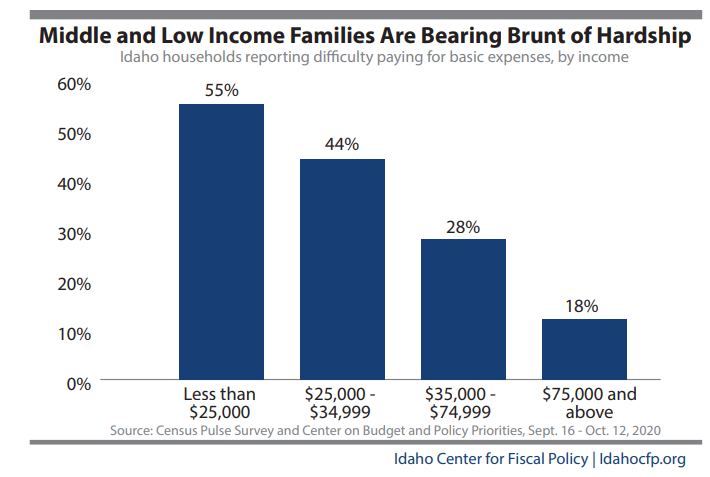Fiscal group calls out economic hardship in Idaho
BOISE, Idaho (KIFI/KIDK)-The independent Idaho Center for Fiscal Policy reports pandemic-related unemployment and income loss are still widespread across the state, especially among middle and lower income families.
In the absence of continued to federal aid to individuals and small business, the center said job and income loss are also holding back economic recovery.
In its analysis, the center said Idaho could take steps to address that hardship and flagging recovery. It suggested direct assistance to hardest-hit households and investments in long-term economic growth, like public schools, transportation, and other core public services.
The report was based on the Phase Two U.S. Census Bureau's Household Survey, which began in August with bi-weekly surveys of Americans, including a significant number of Idahoans.
According to that Census survey data, collected in September and October, nearly half of Idaho families earning less than $35,000 per year have reported lost income due to the pandemic. Only one-third of households earning over $35,000 per year reported lost income.
Losses are expected to continue for all income levels through the fall. Unemployment is not the only cause. Many households said they were experiencing under-employment or working fewer hours than they would like. Women and younger workers are also disproportionally affected.

The Center's report indicates households earning less that $25,000 per year are especially impacted. Over half are having difficulty paying for basic household expenses. 28-44% of middle-class families are also experiencing challenges affording basic needs, all of which is adding to food insecurity.
The latest survey indicated over one-third of Idaho households reported a family member had cancelled plans to attend a post-secondary institution. Over half said they couldn't afford it. About one-third said they cancelled due to health concerns.
The Center for Fiscal Policy believes these trends could lengthen the recession if state leaders don't focus on policy options that address hardship and invest in long-term economic growth.






